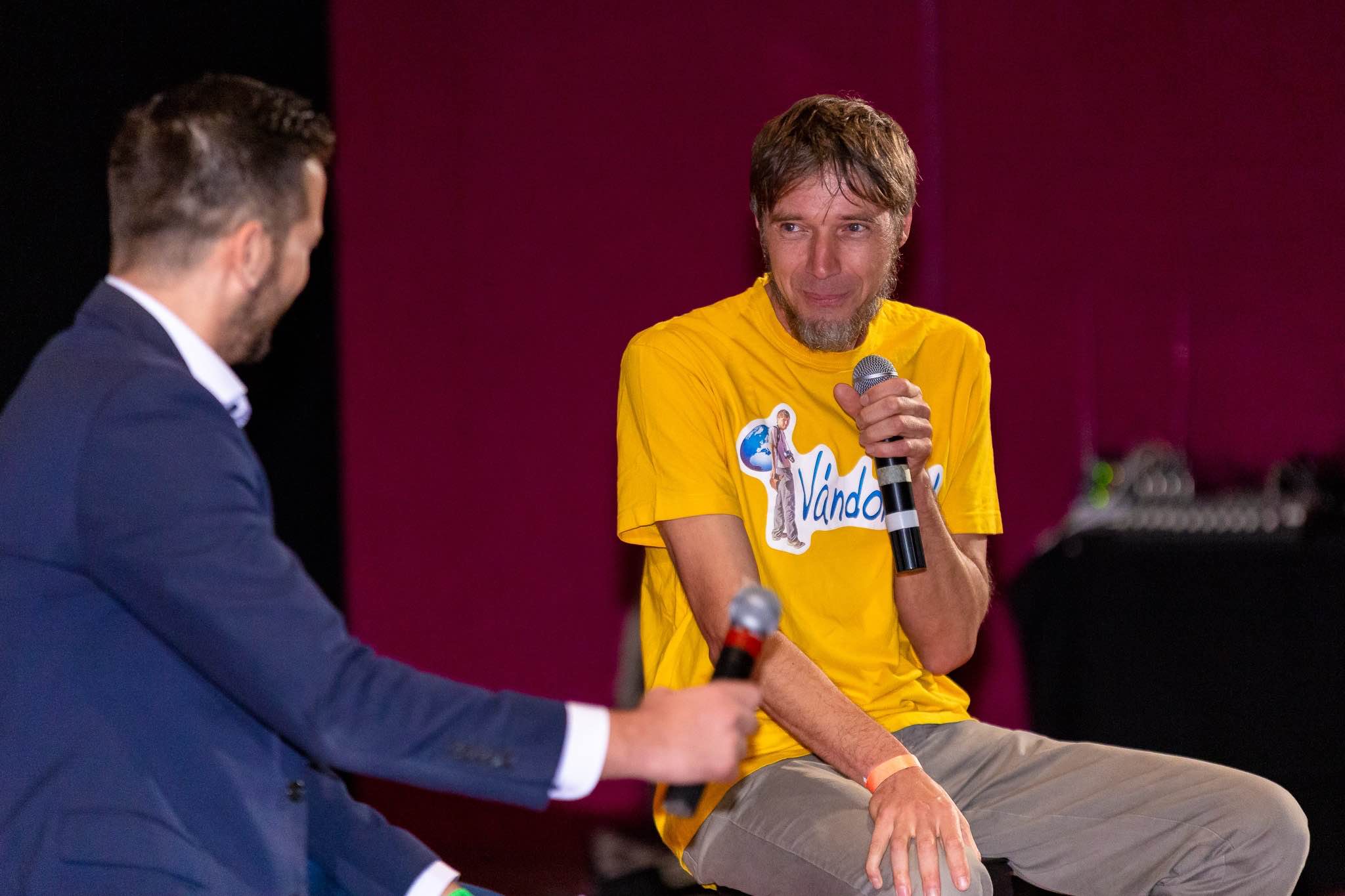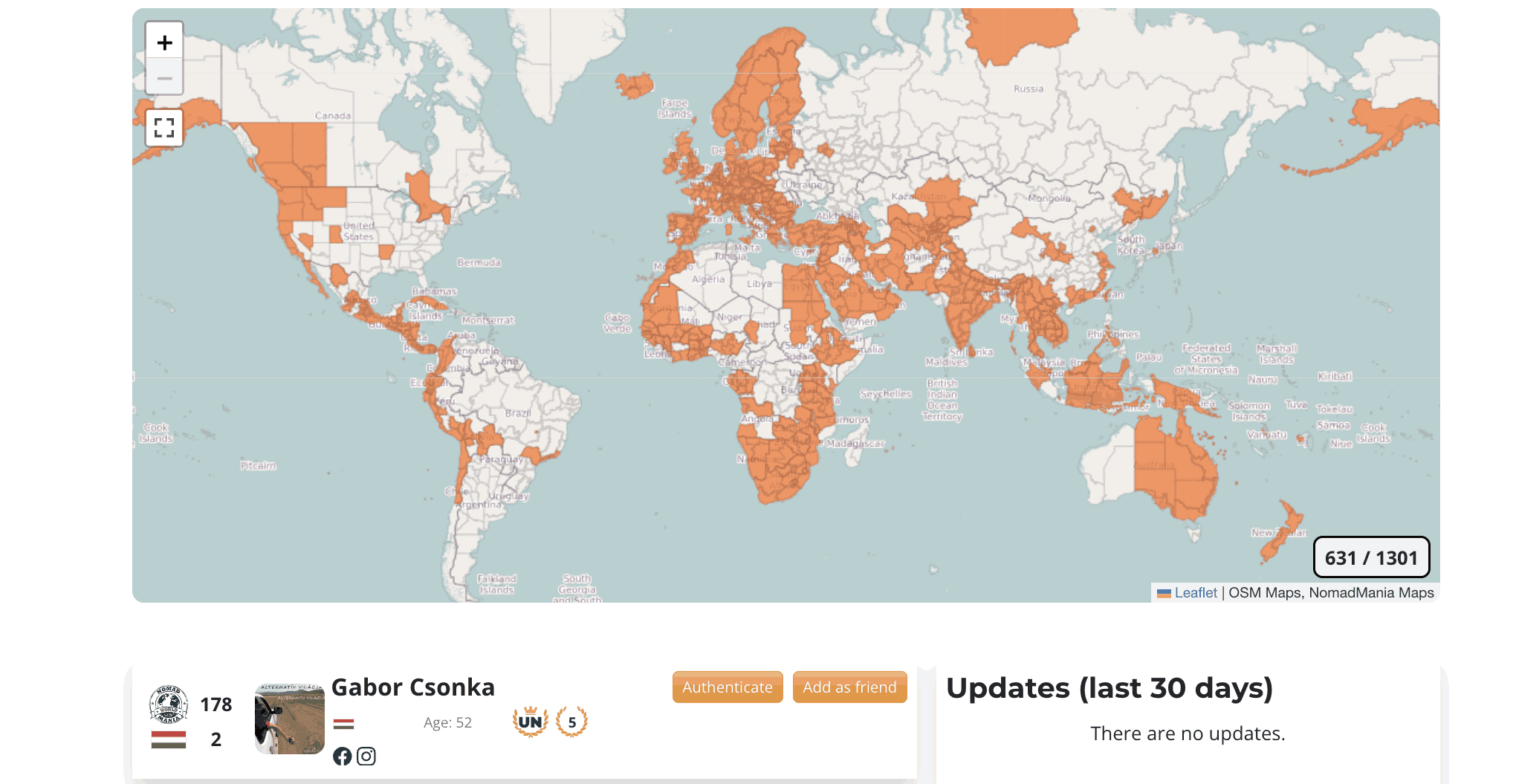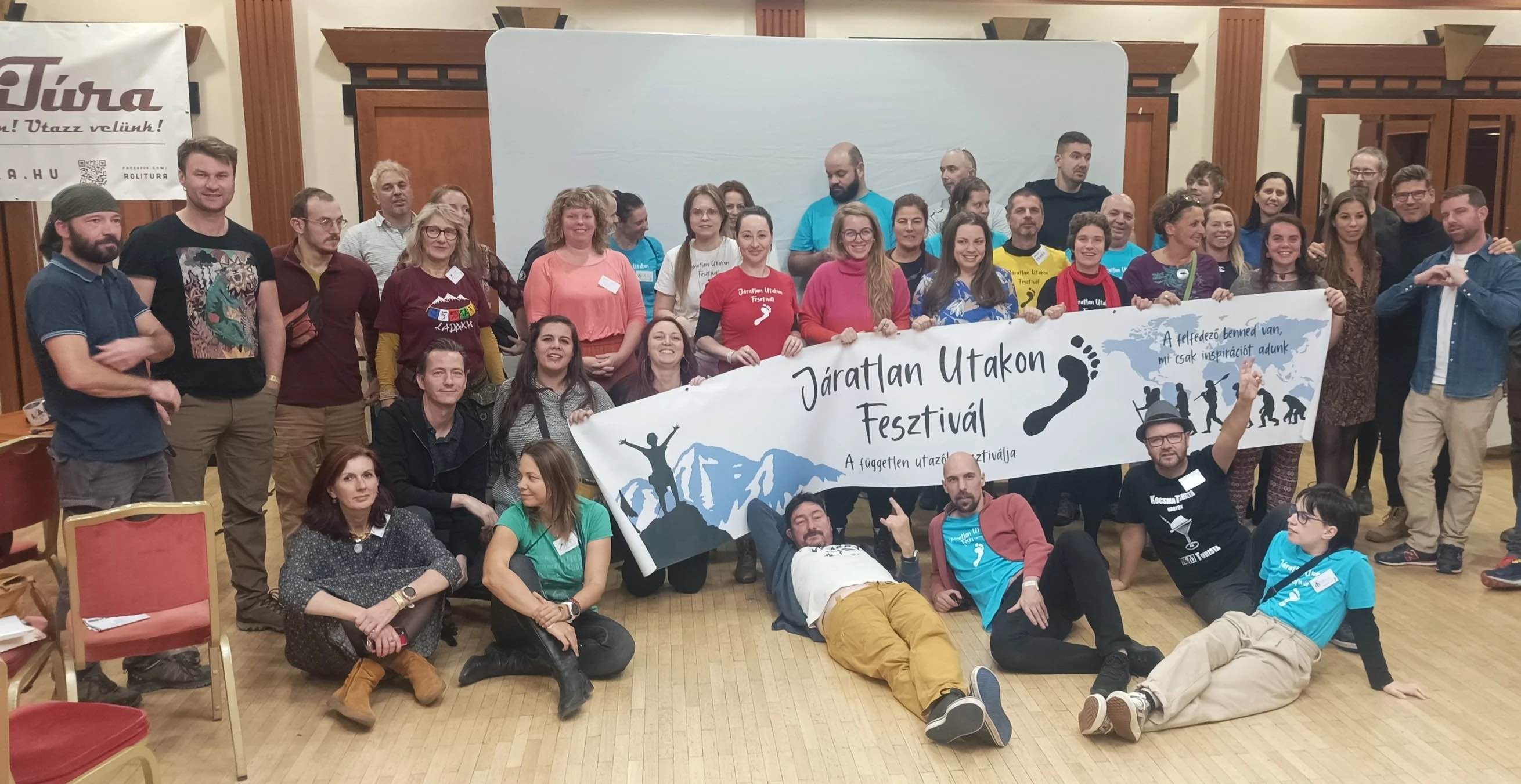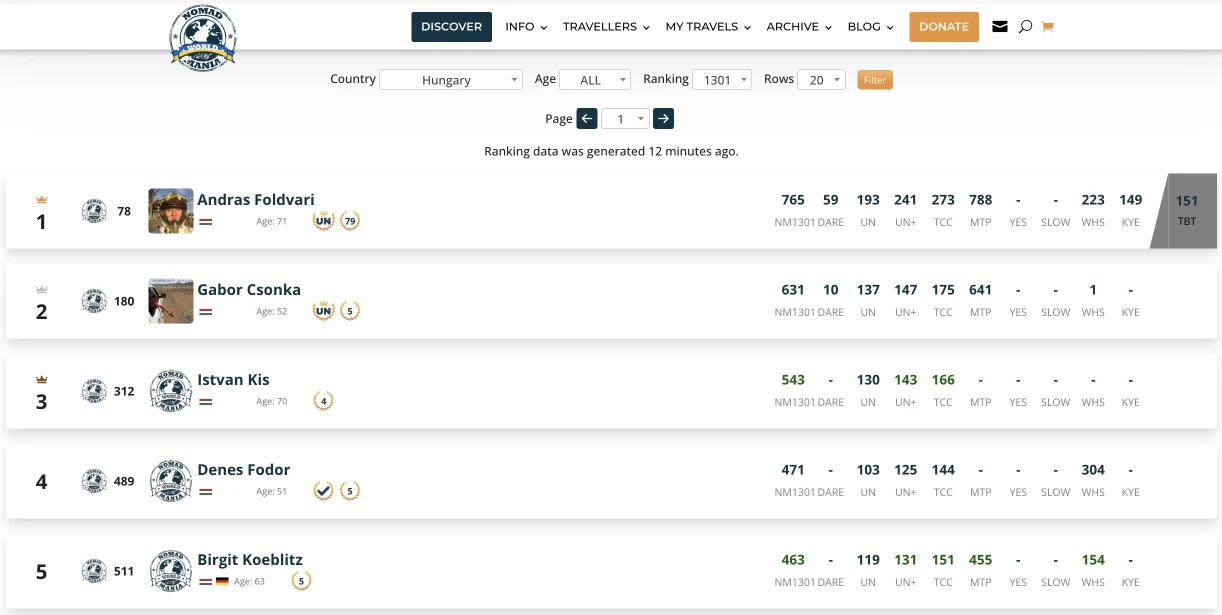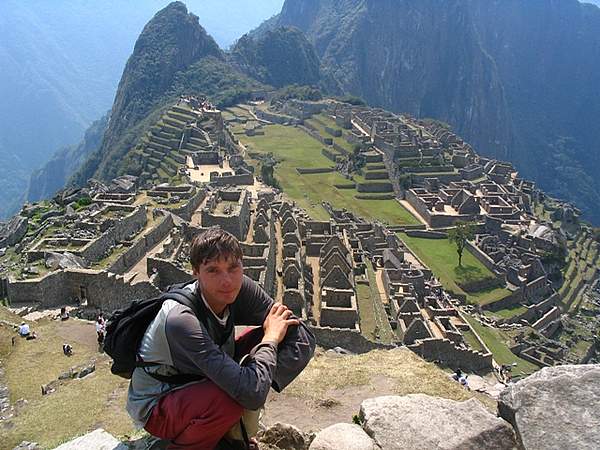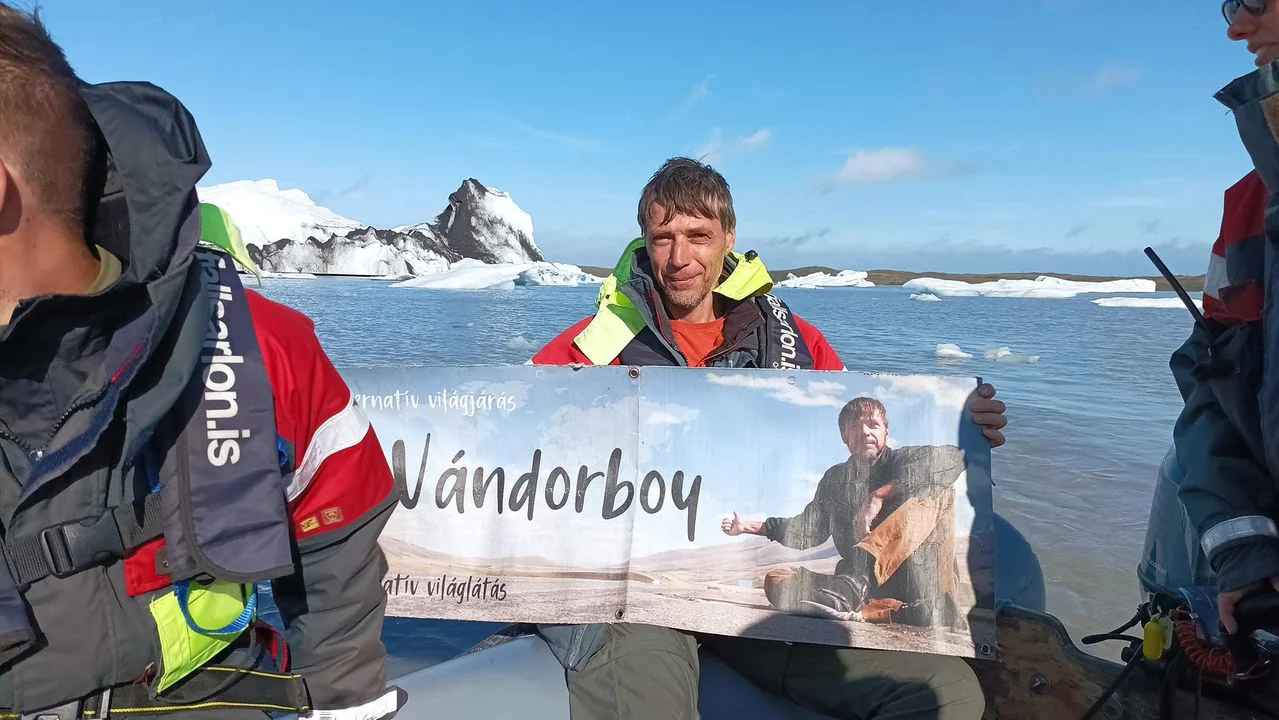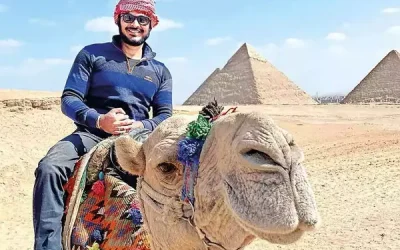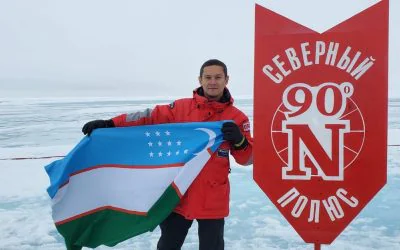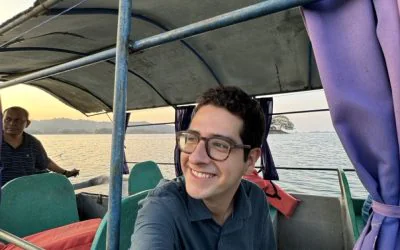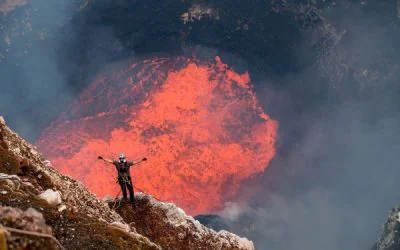Welcome to an exclusive interview with Gabor Csonka, recognised as one of, if not the most travelled Hungarian explorers of our time. His passion for travel has led him to visit an astonishing 146 countries since 1989, with much of his journey done through hitchhiking.
We had the pleasure of attending his travel festival, Jaratlan Utakon, and reported on this unique event. Today, we delve into Gabor’s world to uncover the stories, insights, and experiences of this extraordinary traveller.
This interview is available in video form on our Youtube channel …
I am pleased to present Gábor, who is one of, if not the biggest, Hungarian travellers.
Yes, I hitchhiked for 12 years permanently and have been travelling since 1989. I’ve travelled to 146 countries so far.
So you’re telling me that within the Hungarian community, if they think about the most travelled Hungarian person, the person that comes to mind first is you?
Yes, probably. I think there are probably people who have travelled to more countries, but they did it for work. They possibly worked with travel companies, but I did it myself. I had a long journey, so I had enough time. Usually, I leave the country when my visa finishes, so I have to move to the next country. Usually, I come home for 2 years, and in between, I was just travelling, and sometimes I start working in Australia or in the US, generating some money.
I was in a lucky generation because, in the 80s and 90s, there weren’t so many travellers. Getting a passport or visa was difficult for other countries, so I am lucky in the fact that since 1989 I have been able to travel somewhat freely and be appreciated. The younger generation is not facing as many barriers and problems, so maybe they don’t value travel as much, but for us, it is like the forbidden fruit. So when we got out of Hungary and first went to Germany, it was like some sort of freedom, and everything was modern and shiny, same with Japan.
I was in Japan in 1988, and that for me was very fascinating. I came from the ‘middle ages,’ let’s say, and I jumped into the future, and it was shocking. This made me love to travel and discover so many new countries.
Gabor’s current NomadMania map
I understand you. I am from Ukraine, and for our travellers, the world travel opened up not so long ago, the same for many other people in Hungary. So you did 146 countries, how did it start for you? You started in the late socialist era, what was the breakthrough?
Yes, absolutely. So in the ex-socialist era, we could still travel, so my parents went to Czechoslovakia, Poland, Romania, but the big step was in 1989 when the communist system collapsed, and we could travel. So my first independent travel was in 1989 to Greece, and one of my friends told me to come to Greece to hitchhike, and that’s where we went. We were sleeping on the street, and I don’t know what they call it in English, but we would go to the table when a person left and eat their leftovers because we didn’t have money at that time.
We had about 50 German marks, 25 euros, that is what you were allowed to bring out from your country, so basically, we had no money, but we really wanted to discover the country and the civilisation. And I studied philosophy, so I was really interested in understanding the culture, and we had a fantastic journey.That was, I think, the turning point when everything was so fluid. I learned English because I didn’t learn English in school but rather on the road.
Maybe you can hear, but I speak “Hunglish” (laughs). This is what I can call it with my accent. I can hear everything, and I can communicate, but the communication is not really about the language; it’s about your attitude. So I learned during my travels as well.
You had this amazing journey to the East. How were the visa policies back then?
At that time, it was visa-free because we were in the socialist bloc. We traveled to China and Russia without a visa, so there were no complications, and we could manage this journey with just 6 USD. It was super cheap at that time. We even had a problem because on the Trans-Siberian Express from Irkutsk to Beijing, there were 12 young students, and we only had 5 tickets.
So when we entered the train, we had to disappear somehow, so they didn’t throw us out because we didn’t have enough tickets, which would have been twice the price. It was also almost impossible to get a ticket, and of course, we had to bribe someone. We did what the socialist bloc taught us to do (laughs).
But finally, we reached Beijing, and I had 200 USD in total for one month’s travel in China, which I lost more than half on the first day. I went to the embassy to try to get money, but they were unable to give me any. I thought about going to Kazakhstan, but they said there’s no border, and I also couldn’t get back on the train because there was a mafia, so I had no other option. It was either live in China or try to get out.
NomadMania participated in the largest annual travel festival in Hungary – Jaratlan Utakon which is founded by Gabor
How old were you back then?
I was about 19. My mother also traveled a lot and at an early age, so I think it’s in my blood.
In NomadMania, we have a motto: “Show me your map, and I will tell you who you are.” From your travel record, I can see you had a lot of travels in Asia, and I believe this is your favorite part of the world to travel. You did a fair amount in Africa and Latin America. So how did your travel develop?
I try to travel to destinations I am interested in, so I focus on cultures. Like tribal cultures, Papua New Guinea for me was one of the top destinations. And in Africa, mostly Central Africa, there are very interesting places to see, how they think, how they live, and this is what I showed in my presentation.
The cultural differences. We cannot judge from Europe how they live because we don’t understand the way they live, the structures they live in. Especially in Hungary, this is a very important topic because our politicians twist the neck of our people, they don’t really want us to know the truth. So when I do my presentations, I try to open the eyes of people and show the reality of those nations because in the media you get one thing, and as a traveler, you know the true things.
Gabor Csonka, who is currently ranked second on NomadMania’s Master List among Hungarians
Since you became somewhat of an authority in traveling in Hungary, I see that there’s a way for you to share this knowledge. And I see you have your own personal blog where you write about your travels with the name “Vandorboy.” I believe some people call you Gábor and others call you Vandorboy. So, is this your nickname, or how did this develop?
Honestly, when I got an email over 20 years ago, I was thinking about what would be a nice name, and ‘Vandor’ means someone who is wandering, and ‘boy’ is just a boy. At that time, mostly I had foreign friends, so Vandorboy is something Hungarians and English speakers can understand.
Tell us more about your blog. What do you like to publish and share?
In the beginning, I started it because when I came back to Hungary, many people would ask what I’ve been up to, and after repeating it over 100 times, I decided to make a slideshow so that those who are interested could get the updates. People then started asking me to write, so I did.
Everybody has a different style of traveling. What would you say yours is?
Technically, when I was 20, I had to decide what I wanted. Did I want the career, the money, and the girls, or did I want to self-express and fill up with the knowledge of the world? I decided on the second option, so I was very simple, very poor. Of course, I was working just to get money for visas, flight tickets, and food. Because the rest of the things, hitchhiking and sleeping, are free, and it taught me how to be enduring. I was hiking a lot, walking, climbing a lot of mountains, and being independent, self-sustainable.
Wow, so we’re talking about a 20-year span of constant traveling and taking a lot of small jobs along the way?
12 years were permanent when I traveled, and then in the past 6 years, I started being a tourist guide of countries that not so many people go to, such as Central Asia, Pakistan, Papua New Guinea.
Okay, so now you’re also running an adventure travel company where you make tailor-made tours, and you share your knowledge with people who want to see the world.
Yes, and I share my stories, which they enjoy very much because I have so many stories, one for almost every region and country. So, I believe I can give people knowledge of the area. Maybe not encyclopedia knowledge, but the knowledge of people who lived there, what they think, how is the political situation, etc. I’ve also been in many communities like Couchsurfing. So when I travel with these tourists, I also ask some of my old friends from Couchsurfing to come, and they can offer insights into the situation of the country. This helps break stereotypes of a country through these stories.
So who can join these tours and where can people get to know about your tours?
Anyone can join. I’ve had many clients. You can find out more information on vandorboy.com, and my Facebook is “Vandorboy – The most traveled Hungarian” But mostly everything is done in Hungarian.
It feels like you’ve been living this free-spirited life with long days and months on the road, and now we are in Budapest. There is a growing community around this. You told me you have a child, so how do you combine that now? I can imagine it to be a dramatic change for something that you’ve been used to for 30 years of your life, and now you have a family. How did you transition through this period?
That’s interesting because, for a long time, I didn’t feel like I wanted a child. But when I was about 48 or 49, I changed my mind and chose a partner who wanted to have a child with me. It’s a change in perspective because obviously, you’re responsible for more people. So now, I try my best to bring them with me if possible to accommodate my travel habits. My 2-and-a-half-year-old baby has already visited Sri Lanka, Iceland, Jordan, the Czech Republic, Slovakia, and Greece. So the tours where they can join, they come.
My baby is at an age that it’s very easy because he automatically has “10-15 babysitters” on the tour because everyone loves him, and it’s good to have more fun with my family. It’s also good to be separate, of course, so sometimes you do need a break, and that is travel.
Okay, so wrapping up our conversation, which could honestly last for hours, what’s your vision and plan for the future of your personal journey and the entire community in Hungary, this festival, etc.?
Yes, this travel festival is honestly my child, so I want to see it growing. This is the 15th festival, so it’s come a long way. I feel that I have created a community of just travelers. We travelers understand each other, we talk, and we can get new information from each other. That’s why this community of mine is so inspiring. With my festivals, I try to give new information to all who have an open mind and want to inspire the world.
This is a legacy you’re leaving, and I think it’s very inspiring. Our last signature question at NomadMania is – if you had a chance to have dinner with 3 people, both living or historical, who would these 3 people be and why?
That’s a difficult question because I want to meet myself first, in reality, to understand who I am. I do meditation and inner work, and traveling also teaches you to learn about yourself a lot, so this would be the first. I’d probably choose some philosophers like Socrates; he’d be an interesting figure to meet. I like the Arabic culture – they have a great attitude, they always welcome you. The third would be a surprise; anyone is welcome. I like the openness of the people, so I am open to meet anyone who has questions or openness to understand or learn from me in that way.
In wrapping up this enlightening conversation with Gabor, it’s clear that his journey is not just about traversing the globe, but about building a community and sharing the wealth of experiences and knowledge he has garnered over the years. His travel festival, Jaratlan Utakon, is more than just an event; it’s a testament to the spirit of exploration and the bond that forms among those who choose to wander.
Gabor’s story is a powerful reminder of the profound impact travel can have on our lives and the world around us. For those inspired by his journey, there’s a world of adventure waiting to be discovered, and Gábor’s experiences serve as a guiding light for explorers at heart.
